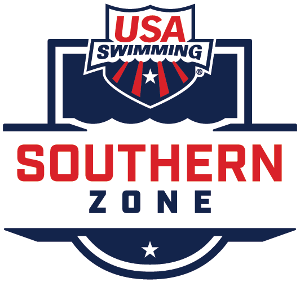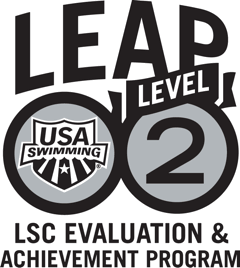OFFICIAL'S
Article 105 Disability Inclusion
Article 105 GUIDELINES for Officiating Swimmers with a Disability in USA Swimming Meets
By: Jim Peterfish
During the September 2023 HOD Meeting, R-5 passed by acclamation creating the most comprehensive change to Article 105 since its inception. Numerous inconsistencies in officiating swimmers with disabilities reported to the Disability Subcommittee was the motivation for this legislation. Article 105 promotes parallel competitiveexperiences for all athletes with a permanent disability and has seen minimal changes over the last decade.
Starting with the premise that swimmers with disabilities are athletes deserving a fair and parallel experience, the newly revised language focuses on clarifying three core points.
1) Accountability/Communication:
During the September 2023 HOD Meeting, R-5 passed by acclamation creating the most comprehensive change to Article 105 since its inception. Numerous inconsistencies in officiating swimmers with disabilities reported to the Disability Subcommittee was the motivation for this legislation. Article 105 promotes parallel competitiveexperiences for all athletes with a permanent disability and has seen minimal changes over the last decade.
Starting with the premise that swimmers with disabilities are athletes deserving a fair and parallel experience, the newly revised language focuses on clarifying three core points.
1) Accountability/Communication:
- A) The swimmer is responsible for communicating with the Meet Referee any necessary accommodations/modifications.
- B) The Referee will instruct the Deck Referee and Starter how the accommodations/modifications will be made for the swimmer.
2) Guidelines for officiating:
- A) The Meet Referee will determine which of two options the officiating crew will use to report observed violations.
- a. Observe and report ANY violation and vet the call against the approved modifications and apply Article 105 to overturn the call.
- b. Or, share specific modification(s) and report any violation except the approved modification(s).
3) Emphasizing the significant difference between Accommodations and Modifications:
- A) Accommodations are conditions related to the ability to access the venue.
- B) Modifications are specific to the technical rules allowing a parallel experience.
When referring to reasonable accommodations ADA laws speak to accessibility and removing physical and communication barriers that exclude individuals with disabilities allowing them safe access and unpretentious communication. E.g. access to pools, locker rooms, pool decks, use of PAs, etc. Accommodations always directly relate to the individual.
When referring to reasonable modifications ADA laws speak to modifying existing policies, practices and procedures. In other words, allowing an individual the ability to participate in a manner similar to those without a disability. E.g. modifying our technical rules so that the individual may have a parallel experience with their peers. The term “modification” refers to rule modifications.
These two terms, while similar in context, create significant confusion when used interchangeably. Perhaps viewing them in the context of meet operations may provide much-needed clarity. Any adaptations for a swimmer with a disability that are necessary from arrival at the venue up until the time they are under the authority of the starter is an “accommodation.” Any change related to the technical rules while racing should be labeled a “modification.”
Article 105 may be the least referenced article in the rule book due to the relative low incidence of swimmers with disabilities. Meet Referees are encouraged to review Article 105 and determine how they will handle the reporting of rule infractions while observing swimmers with disabilities.





